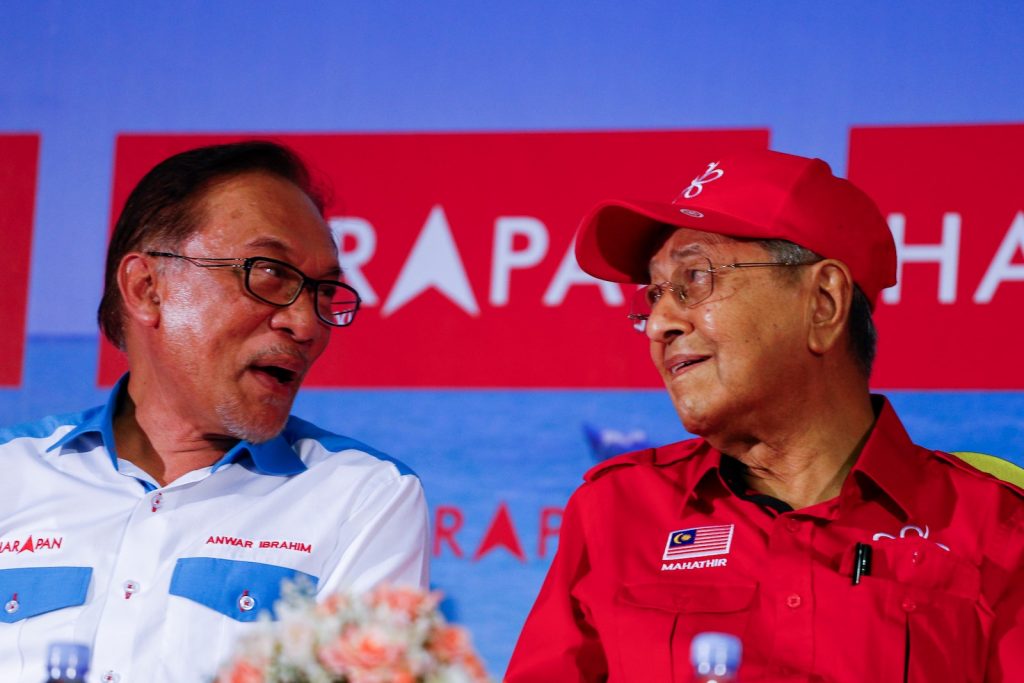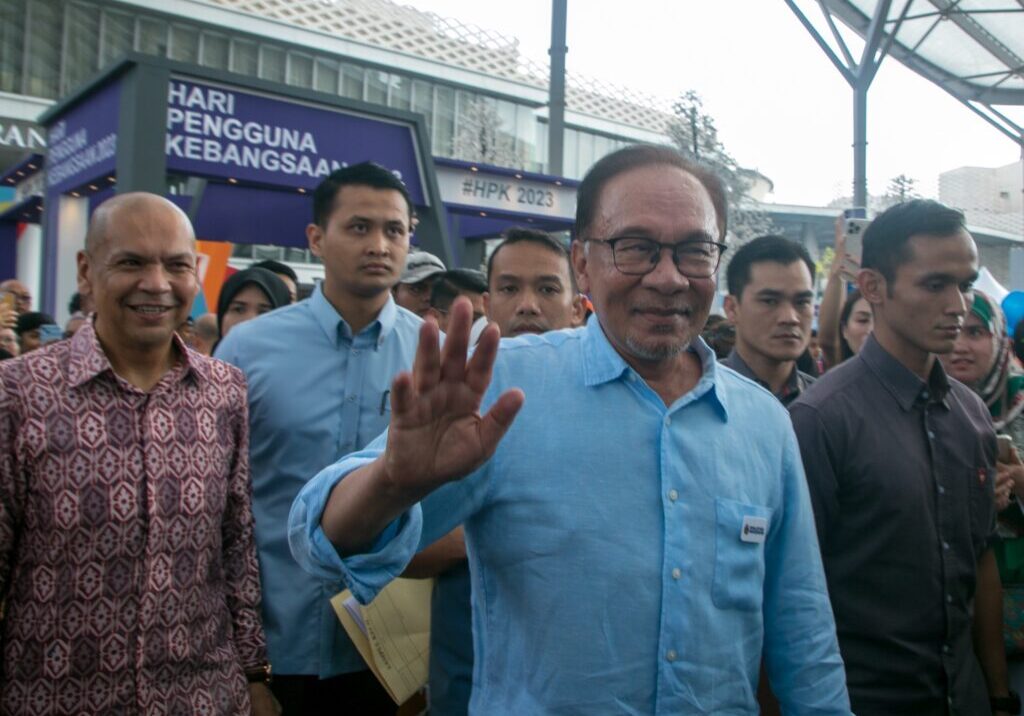Australia/Israel Review
Asia Watch: Following the Script
Nov 8, 2018 | Michael Shannon

Anwar Ibrahim, the father of Malaysia’s political reform movement, clinched a landslide victory in a by-election for the seaside constituency of Port Dickson on October 13, setting the scene for an intriguing next chapter as Prime Minister Mahathir Mohammad serves a (promised) two-year term as PM while his supposed successor Anwar waits in the wings.
Anwar said soon after his release from prison that he would spend two years lecturing at Western universities and in some Muslim countries, so his re-entry into parliament is an off-script development, but then so is the fact that neither of his family members in parliament – wife and Deputy PM Wan Azizah Ismail and daughter Nurul Izza Anwar – gave up their seats for him as previously promised.
Still, Anwar insists he is in no rush to return to the Cabinet and would give Prime Minister Mahathir “space and latitude” to run the country, “unaffected by the constraints of time or pressure.”
Anwar is wise to carefully weigh his words as any sign that he is impatient to assume national leadership will not go down well with Mahathir. As Anwar’s star rose as Deputy Prime Minister under Mahathir in the 1990s, Mahathir eventually put him down in a savage fashion that consigned Anwar to jail and apparent political oblivion.
Two decades later, despite the seemingly cordial ties between Mahathir and Anwar, some point to Mahathir’s less than effusive remarks as a sign he may still have lingering doubts about his one-time protégé.
In a recent appearance on the BBC’s HARDtalk program, Mahathir seemed to distance himself from Anwar’s description of their reconciliation, denying that he ever tendered a formal apology to Anwar and suggesting such claims were merely Anwar’s “opinion”. As to his successor, he affirmed it would be Anwar with the caveat, “if that is what the nation wants.”
Adding to the uncertainty are the implications of a bitter intraparty tussle over the deputy leadership of Anwar’s Parti Keadilan Rakyat (PKR) – a key component of the governing Pakatan Harapan coalition – between party Secretary-General Rafizi Ramli and Azmin Ali, the Economics Minister in the new government. The two contenders are seen to be favoured by the Anwar and Mahathir camps respectively, but the attention focussed upon them also reflects a climate that, with an ageing Anwar and the world’s oldest state leader Mahathir living on borrowed time, seems to invite ambitious, younger figures into play.
In the meantime, the Pakatan Harapan (Alliance of Hope) Government is expected to deliver on its clear mandate of reform and build a “New Malaysia”. Along with tackling corruption and restrictions on civil liberties, priority has been placed upon reversing the creeping Islamisation of state institutions and the legal system that accelerated under former PM Najib Razak’s government, along with elevated social tensions.
Facing pressure from corruption scandals and declining popular support, Najib courted the growing cohort of religious hardliners by playing up fears of the erosion of Islam and Malay political power. His close ties to Saudi Arabia coincided with an influx of Saudi-trained Islamic scholars into Malaysia’s civil service and religious bureaucracy, especially the Malaysian Islamic Development Department (Jakim) – a powerful agency closely associated with the apparently unassailable and increasingly intrusive religious rulings that rose to the fore under Najib.
Although the process of gradual Islamisation dates back to Mahathir’s first term – as a bid to head-off the conservative Islamic populism of PAS (Parti Islam seMalaysia) – the past decade has seen a dramatic increase in funding for Jakim and increased power for Sharia courts in PAS-controlled states. Recent verdicts sanctioning the public caning of two Muslim women in a sexual relationship and the marriage of a 41-year old man to an 11-year old girl caused widespread outrage.
Mahathir has voiced a desire to review Jakim and its related agencies, and bring the state-sanctioned interpretation of Islam closer into line with the values of mercy and compassion. “We need to show that Islam is not a cruel religion that likes to impose harsh sentences to humiliate others,” he said in a statement addressing the caning, describing the Sharia court’s verdict as counter to “the ideals of justice and compassion of Islam.”
Harapan’s Religious Affairs Minister, Mujahid Yusof Rawa, now intends to introduce a Religious and Racial Hatred Act that would allow “action against anyone that hates other religions or races, with intention to sow hatred.”
As expected, even a modest softening on Islamic and sectarian matters will meet resistance from PAS and the United Malays National Organisation (UMNO), the once-dominant linchpin of the previous ruling coalition, Barisan Nasional. The former political opponents – drawing ever closer in opposition – now posture as defenders of Malay rights and have accused the Harapan Government of pursuing an anti-Islamic agenda.






